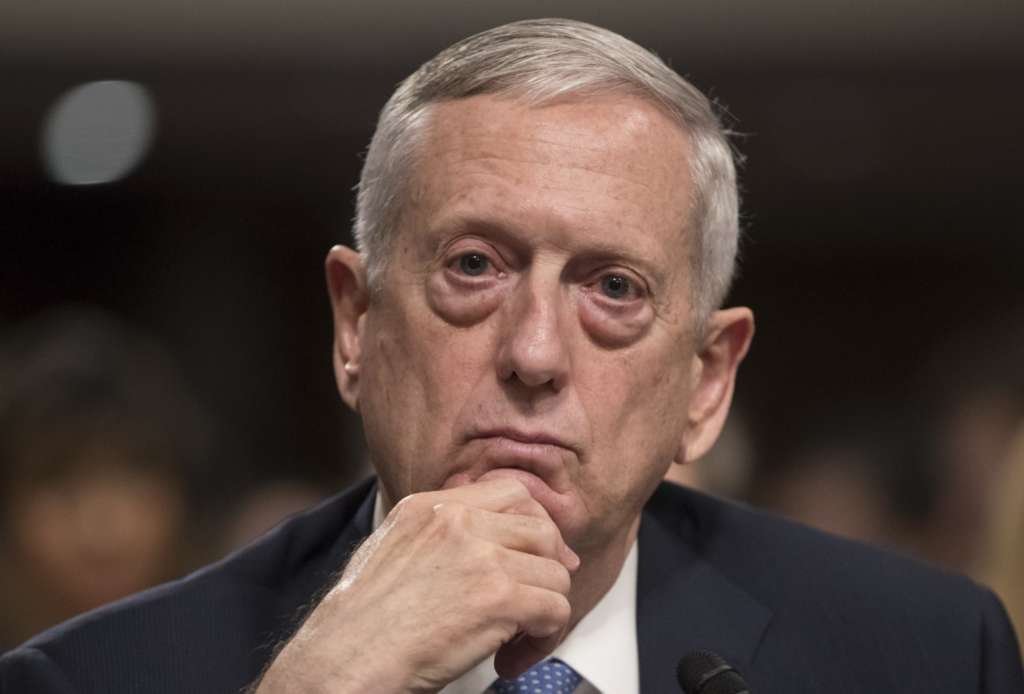In one of his first acts as President of the United States, Donald Trump lifted the restrictions imposed by his predecessor Barack Obama on the Pentagon’s ability to devise and implement strategies in Iraq and Syria as part of a re-invigorated war on terrorism.
The lifting of restrictions was a welcome move partly because the new US Defense Secretary General James Mattis is a man with deep knowledge of the terrain in Iraq and the broader regional geostrategic landscape.
Since the lifting of the restrictions, the US military, re-motivated by Gen. Mattis’ energy, have helped Iraqi national forces to intensify the campaign to flush ISIS out of Mosul. That campaign may take a few more weeks before victory is achieved. But it has already punctured the myth about ISIS’s invincibility.
ISIS always regarded the Syrian province of Raqqah, which it has controlled for years, as its fallback position from Mosul, a kind of impregnable glacis against its many enemies in the region. This is, perhaps, why the US military have decided to bring forward the notional date they had fixed for the start of operations to liberate Raqqah from the ISIS.
It is in that context that last week’s operations to the east of Raqqah by the Syrian Democratic Forces, backed by the US, must be seen as the opening salvos in the final campaign to flush ISIS out of itself-declared “capital of the Caliphate.”
Those probing operations serve two purposes.
First they pave the way for a full-scale attack, perhaps by September, on Raqqah. Secondly, they oblige the “Caliph” to re-call his best units from the fight in Mosul to defend his “capital”, a development that could speed up the end of the battle for Iraq’s third most populous city.
In military terms things seem to be going well in both Mosul and Raqqah.
ISIS is not attracting as many foreign Jihadis as it did a year ago. It has also lost many sources of revenue, especially since Turkey has decided not to turn a blind eye to the black-market trade in oil and arms conducted by the “Caliph.”
At the same time, ISIS’s enemies, especially those on the battlefield, have recovered from the psychological shock of facing an adversary that recognized no limits in bestiality.
Throughout the region and beyond a consensus has taken shape: ISIS is neither a terrorist organization in the classical sense of the term, nor another of those opportunist conquerors that have written the region’s history in blood for over 2000 years.
ISIS is an enemy of mankind, standing alone in its own category of cynical savagery.
More importantly, perhaps, ISIS has lost a good part of the popular base it initially enjoyed among disgruntled and frightened segments of the Arab Sunni population of the Iraqi-Syrian patch of territory once known as “Jazeera”.
In other words, there are objective reasons to hope that the nightmare of ISIS may be heading for its denouement.
Thus, and although it may sound premature, we now have to face the crucial question of the post-ISIS configuration in both Syria and Iraq. And that is something that cannot be left to Secretary Mattis or the military in general.
Fighting has always been a small, though obviously decisive, part of any war. But no war is ever won solely by coming on top in the fighting. The Clausewitzian dictum about war being the continuation of politics by other means is as true today as it was at the dawn of history when man discovered the horrors and some might say the beauty of war.
The task of politics is to translate the outcome of a war into realities on the ground.
That fact was sadly ignored by the US under President George W Bush who, dazed by the easy and speedy victory won on the battlefield against Saddam Hussein in Iraq, subcontracted the post-war political efforts needed to Defense Secretary Donald Rumsfeld. Many of the problems that post-liberation Iraq has faced may be due to that initial mistake.
Today, winning the war in Mosul and Raqqah is no longer a distance aspiration; it could become a reality earlier than many of us hope.
However, unless there is a proper understanding of what the future may look like in both Iraq and Syria, and, though very different, the two cases have many points in common, we risk repeating the mistake President Bush made in 2003.
In that context, the nations interested in the region for reasons of their own security and/or ambitions must pose a number of questions.
Do we want to maintain Syria and Iraq intact as nation-states within the same borders fixed after the First World War?
How do we cope with the Kurdish appetite for independence that the US and some of its allies have whetted in exchange for great sacrifices by the Kurds in the war against ISIS?
What about Turkey’s ambition to carve out glacis inside both Iraqi and Syrian borders ostensibly to protect itself against Kurdish “terrorist” attacks?
And, let us not forget Russia’s clear design to secure a permanent military presence on Syria’s Mediterranean coast?
To all that we must add Iran’s determination to protect its “corridor” to Lebanon and the Mediterranean, something for which it has spent billions and offered thousands of “martyrs.”
More importantly, what sort of power sharing might help Syria’s Sunni majority to lead a future state while allowing space for the minorities including the Alawites? And in Iraq, what arrangement might enable a Shi’ite-dominated state to also belong to the Sunni Arab and Kurdish minorities?
These questions cannot be answered by General Mattis or any outsider alone although major powers have a crucial role to play. The answers must come from the political leadership at all levels, both in government and in opposition, in Syria and Iraq.
Right now, however, I see no sign that Iraqi and Syrian leaders, are willing or able to face those questions.
